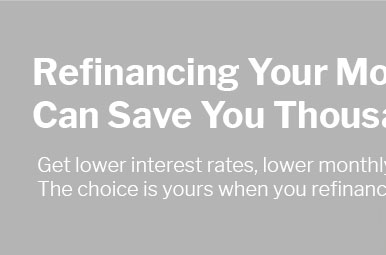 |
 |
 |
 |
 |
|---|
 |
 |
|
|---|---|---|
 |
 |
|
 |
 |
|
 |
 |
 |
 |
 |
 |
Understanding 15-Year Loan Rates: Frequently Asked QuestionsIn today's complex financial landscape, the allure of a 15-year loan is often overshadowed by its more popular sibling, the 30-year mortgage. However, for those who wish to explore the potential benefits and challenges associated with a 15-year loan, understanding the nuances of its interest rates is crucial. This article delves into the frequently asked questions surrounding 15-year loan rates, offering reliable insights for potential borrowers. What is a 15-year loan? At its core, a 15-year loan is a mortgage that is paid off in half the time of a traditional 30-year mortgage. This means that while monthly payments may be higher, the overall interest paid over the life of the loan is significantly reduced. Many financial advisors suggest this option for individuals who are focused on building equity quickly and reducing long-term debt burdens. Why are 15-year loan rates typically lower than 30-year rates? Lenders generally perceive 15-year loans as less risky than their longer-term counterparts. The rationale is simple: with a shorter repayment period, the lender's exposure to potential default is minimized. As a result, interest rates for 15-year loans are often lower, making them an attractive option for those who can manage the increased monthly payment. Who benefits the most from a 15-year loan? This type of loan is particularly beneficial for individuals who have stable, reliable incomes and are in a strong financial position. Homeowners who plan to stay in their homes for a significant period, as well as those who prioritize long-term savings over short-term liquidity, may find the reduced interest costs appealing. Additionally, financially disciplined individuals who aim to retire without mortgage debt might find the 15-year option aligned with their goals. What are the potential downsides? While the advantages are clear, there are potential drawbacks to consider. The primary concern is the higher monthly payment, which can strain a household budget if not carefully managed. Additionally, those who choose a 15-year loan may have less financial flexibility, potentially impacting their ability to save for other financial goals or emergencies. How do economic conditions affect 15-year loan rates? Economic factors such as inflation, Federal Reserve policies, and overall economic growth can influence interest rates for 15-year loans. During periods of economic expansion, rates might rise due to increased demand for loans. Conversely, in times of economic downturn, rates may decrease as the Fed implements measures to stimulate borrowing. Is refinancing to a 15-year loan a good idea? Refinancing to a 15-year loan can be an excellent strategy for homeowners who originally took out a 30-year mortgage but now have the means to manage higher payments. This move can substantially reduce the total interest paid over the life of the loan. However, it's essential to weigh the costs of refinancing against the potential savings and to consider how long you plan to stay in your home. How can one secure the best rates? To secure the most favorable 15-year loan rates, borrowers should focus on maintaining a strong credit score, reducing existing debt, and saving for a substantial down payment. Shopping around and comparing offers from multiple lenders can also yield better rates. Engaging with a knowledgeable mortgage advisor can provide additional insights and help navigate the intricacies of the mortgage landscape. In conclusion, while a 15-year loan is not universally suitable, it offers distinct advantages for those who can embrace its challenges. The decision to opt for this type of loan should be based on a careful assessment of one's financial situation and long-term objectives. Ultimately, understanding the dynamics of 15-year loan rates equips borrowers with the knowledge to make informed, confident decisions in their home-buying journey. https://fred.stlouisfed.org/series/MORTGAGE15US
15-Year Fixed Rate Mortgage Average in the United States (MORTGAGE15US) ; 2025-03-06: 5.79 ; 2025-02-27: 5.94 ; 2025-02-20: 6.04 ; 2025-02-13: 6.09 ; View All ... https://www.nerdwallet.com/mortgages/mortgage-rates/15-year-fixed
The average APR on a 15-year fixed-rate mortgage remained at 5.936% and the average APR for a 5-year adjustable-rate mortgage (ARM) remained at ... https://www.loandepot.com/home-loans/fixed-rate-mortgage/15yearmortgagerates
A 15 year fixed year mortgage is a loan that will be completely paid off in 15 years assuming all payments are on schedule. As the name implies, this type of ...
|
|---|